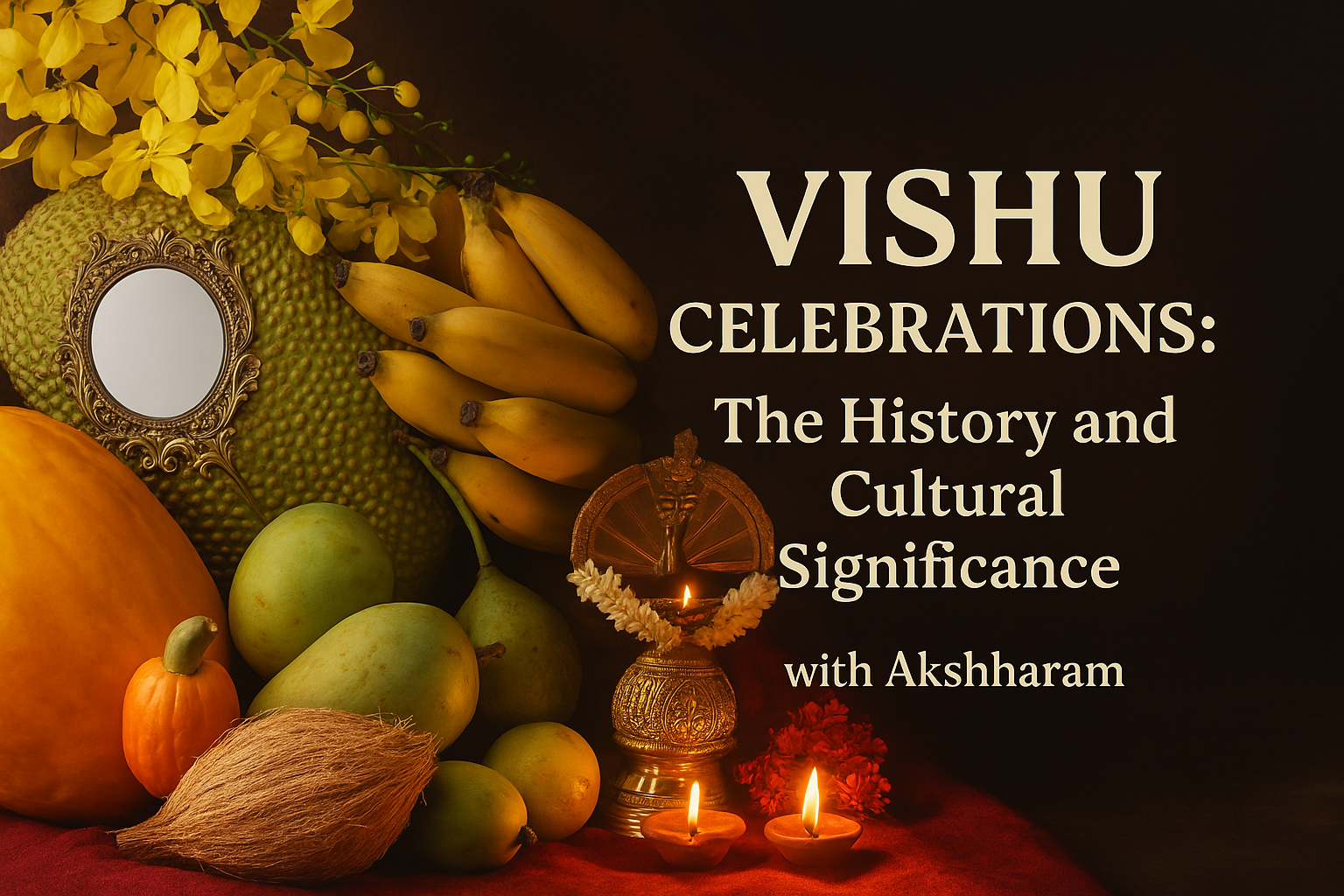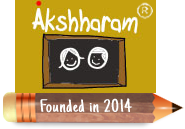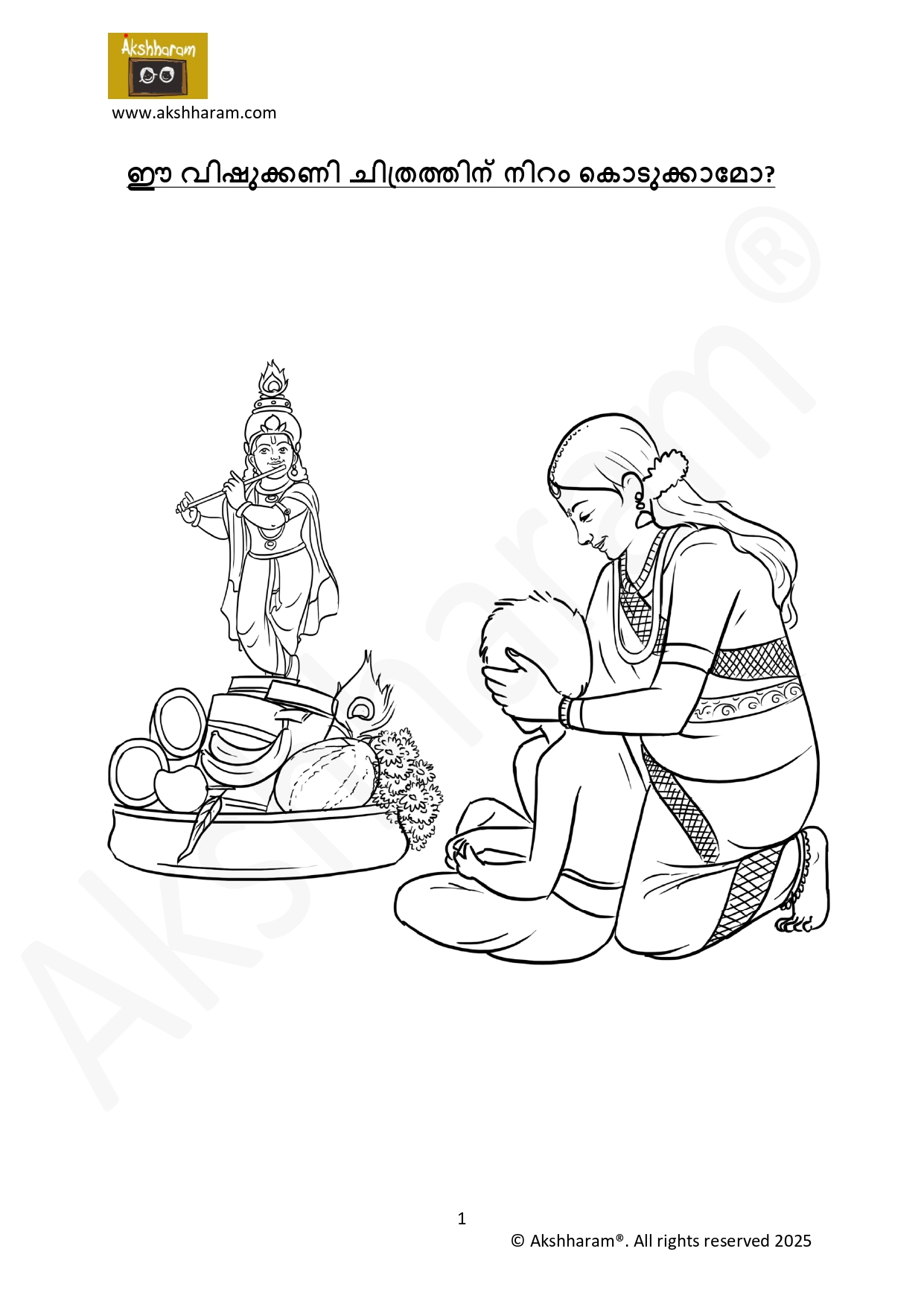Vishu Celebrations: The History and Cultural Significance

Vishu is one of the auspicious occasion and a significant festival in Kerala. It is celebrated as the astrological new year by Malayalis across the world. According to the Malayalam calendar, Vishu falls during the month of Medam. In the English calendar, it is typically around mid-April. This vibrant and colourful festival holds great importance for Keralites. It signifies the onset of a hopeful new year filled with positivity and optimism.
History and significance of Vishu celebrations
Historically, it is believed that Vishu is a period dedicated to worship the Lord Vishnu and Lord Krishna. There are many stories and beliefs associated with Vishu Celebrations. One such mythological belief is that on the day of Vishu, Lord Vishnu slew the monster Narakasura. Another myth suggests that Vishu marks the return of Surya Dev. After the death of the demon king Ravana, on the day of Vishu, Surya Dev got the privilege and honour to rise in the east. The cultural significance of Vishu is the sacred ceremonial preparation of auspicious items, which are regarded as the symbols of good luck and prosperity.
Vishu Kani—Auspicious and garnering sight
Vishu Kani is the most auspicious and legendary custom of Vishu. It is traditionally the first sight of the year, symbolizing hope for a fruitful and prosperous year ahead. According to tradition, the eldest member of the family wakes up first and views the Kani and then guides rest of the family members to see it by covering their eyes. This is a soothing and divine moment, marking a prosperous beginning to the year.
The arrangement of Vishu Kani includes various items such as a statue of Lord Krishna, fresh flowers (kani konna—tiny bunches of yellow flowers), betel leaves, fruits, vegetables, a mirror, gold, money, and silk cloth (Kasavumund). These items are displayed in front of traditional lights, usually in the prayer room. This sacred sight is believed to bring hope, prosperity, and spiritual rejuvenation.
Vishukkaineettam
Vishukkaineettam is an iconic tradition where the elders of the family give money to the younger members. Children eagerly look forward to this practice. This act symbolizes the idea of greater wealth and hope for more generosity in the future.
Vishu Sadhya- Delicious Kerala feast on a banana leaf
No celebration is complete without a delicious meal. Vishu Sadhya is the highlight of the day. A lavish spread of vegetarian cuisine served on a banana leaf. It includes a variety of dishes that blend sweet, salty, sour, bitter, and spicy flavours, representing the different facets of life. All family members sit together and enjoy the feast, strengthening the bonds and sharing the joy of the occasion.
A special Kerala delicacy called Vishu Katta is prepared during Vishu. This traditional snack is made using rice flour, sugar, coconut milk, and cumin seeds. Apart from the Vishu Sadhya, this dish holds a unique significance as it is prepared exclusively on the eve of Vishu in various parts of Kerala.
Vishu kodi- new clothes
Another cherished aspect of Vishu is celebrating by wearing new clothes. This tradition brings joy to both children and elder members of the family. The new attire bought specially for Vishu is referred to as Vishu Kodi.
Temple Visit and other processions
There are many activities associated with Vishu, such as visiting temples. All the family members visit temples to seek blessings. Another highlight of the celebration is bursting firecrackers, which adds joy and excitement to the festivities. In Kerala, the excitement begins two days before Vishu, and firecrackers become an integral part of the celebrations. Families also gather at their ancestral homes (Tharavad) to make the occasion joyful, memorable, and prosperous.
Conclusion
There is a famous quote from Mehmat Murat Ildan: “The best thing about existence is that any moment in time can be a point of beginning to anything.” Just like the Vishu symbolizes the beginning of a new year, starting fresh with Vishukkani, Vishukkaineettam, Vishu Kodi, and Sadhya reminds every Malayali of their roots, even if they are far from Kerala.
At Akshharam, we believe that understanding life’s richness and renewing connections to customs and traditions are essential. We deeply value the idea that celebrating festivals like Vishu strengthens a child's connection to their homeland and roots.
If you are looking forward to helping your children learn Malayalam and their traditions more deeply, enroll them in summer online Malayalam classes. These classes are specially designed for children living abroad. Let's use this Vishu mark the beginning to learn something new with Akshharam. Start joyfully by joining our Malayalam language communication class online.

